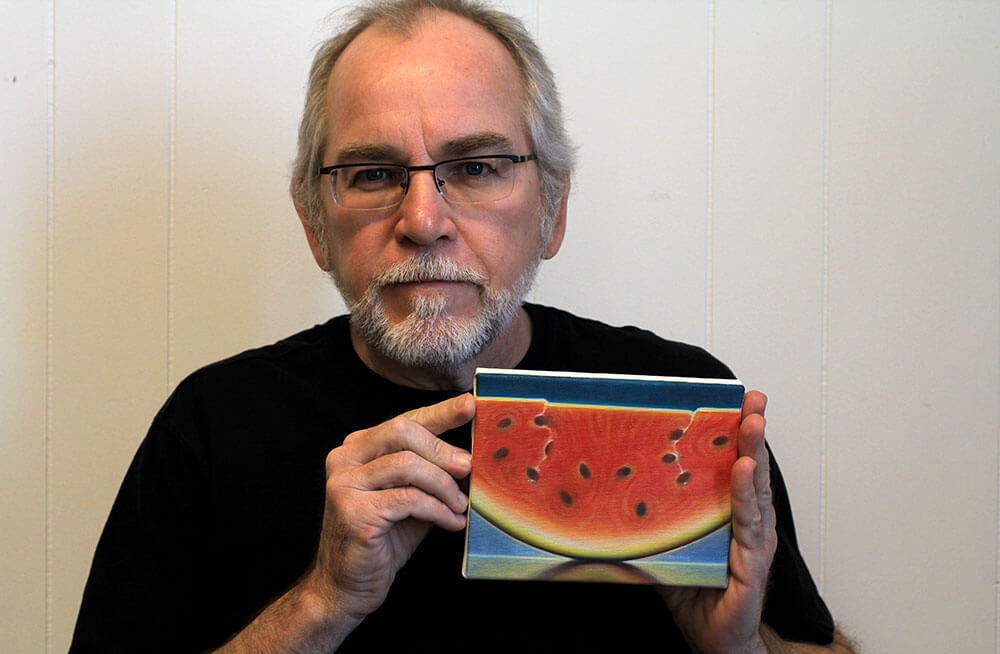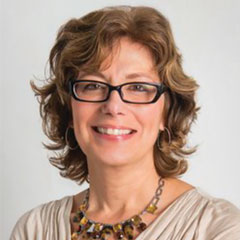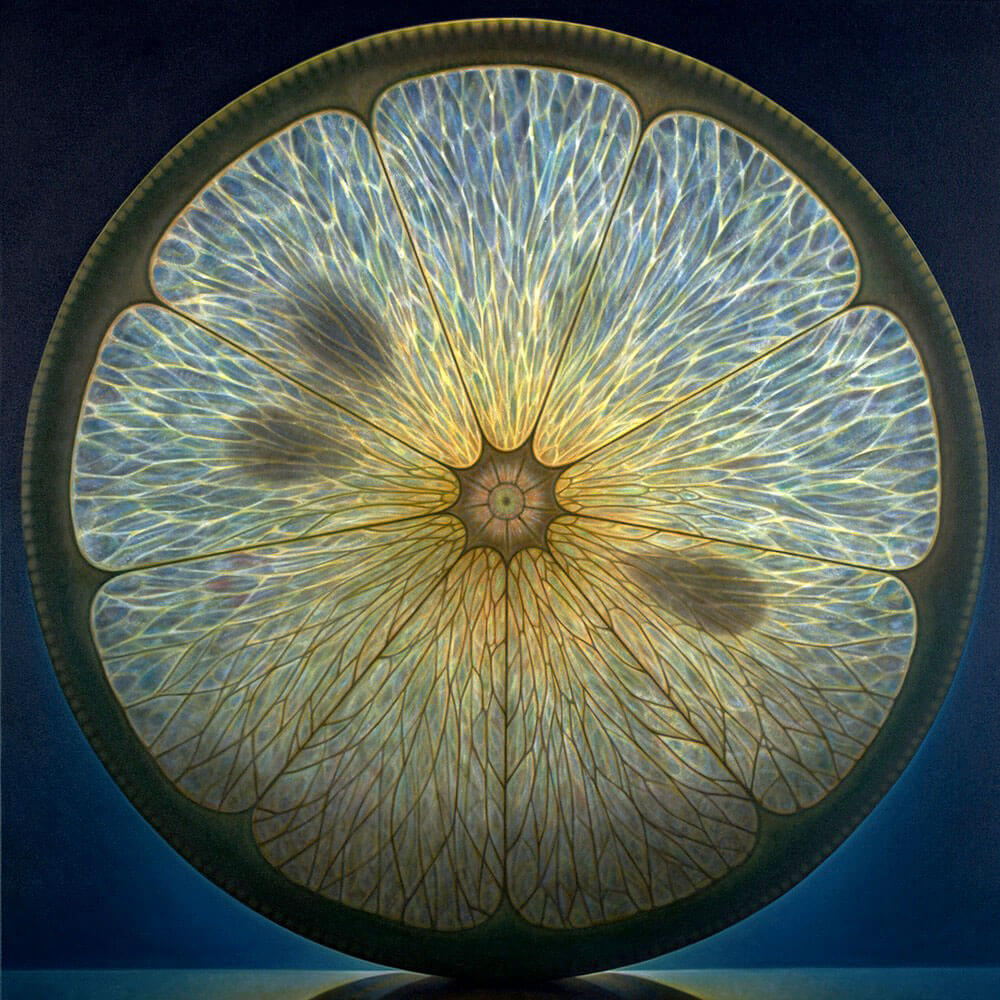
Dennis Wojtkiewicz holds a reproduction of one of his paintings of a slice of fruit. Convene licensed three of the Ohio artist’s paintings for the November cover story about the food crisis. (Courtesy of the artist)

Michelle Russell
It’s one of my favorite parts of producing a monthly print publication: watching how an illustrator hand-picked by our team at Point Five Design conceptualizes a topic for our cover illustration. Each month, we commission a different artist, present him or her with often complex and nuanced subject matter — explained in just a few short paragraphs — and watch them bring it visually to life. And each month, I have a renewed sense of appreciation for their talent as well as their process of making the abstract concrete.
In something of a departure for us, the stunning fruit images by Dennis Wojtkiewicz appearing on this month’s cover and within our CMP Series story weren’t commissioned just for Convene. And perhaps I’m more in awe of his work because I’m so removed from his process. I had assumed these are artfully backlit and incredibly close-up photos of slices of citrus and other fruit varieties. They’re not. They are large-scale oil paintings. Wojtkiewicz, an art professor at Bowling Green State University, is known for his heightened approach to realism, a form of artistic expression called hyperrealism.
His works, which we licensed for Convene, are part of a collection that has been shown at galleries and exhibitions around the U.S. and in international art fairs. Each piece of fruit is captured at its ripest, exploring, as Wojtkiewicz told My Modern Met, “the transitory nature of all living things.”
Part of what intrigued us about the fruit slices is their translucency, which hints at what may lay ahead, and fits well with our exploration of the future of food. We set out on this story with the ambitious goal of laying out how the world’s current food production methods are not sustainable. It’s what Amanda Little, author of The Fate of Food: What We’ll Eat in a Bigger, Hotter, Smarter World, says may be the most troubling paradox of the 21st century: Our population is expected to climb to 9.7 billion by 2050, while the global food supply is predicted to plummet. The need to rethink the way we produce and consume food is critical.
That’s a lot to, well, digest. Where do you start? Within reach. What we can do right now — and where the events industry has the greatest capacity to effect change — is to stop food waste.
So what Deputy Editor Barbara Palmer focused on in our cover and CMP Series story is how event stakeholders are coming around to the idea that food waste is unacceptable from both an ethical and environmental standard. And, more importantly, what you can do to make sure that you’re feeding your attendees — and not landfills — well. When it comes to food consumption, perhaps we need to adopt more of a scarcity rather than abundance mindset. But as we’ve seen by dipping into the food challenge, there’s an abundance rather than scarcity of ideas and technologies to help us plant a brighter future. As for right now, Wojtkiewicz’s work reminds us to savor the good food the Earth gives us.
Michelle Russell is editor in chief of Convene.

The painting on the cover of Convenes November issue is from Dennis Wojtkiewicz’s Rosettes series of large-scale still life paintings of fruit.
